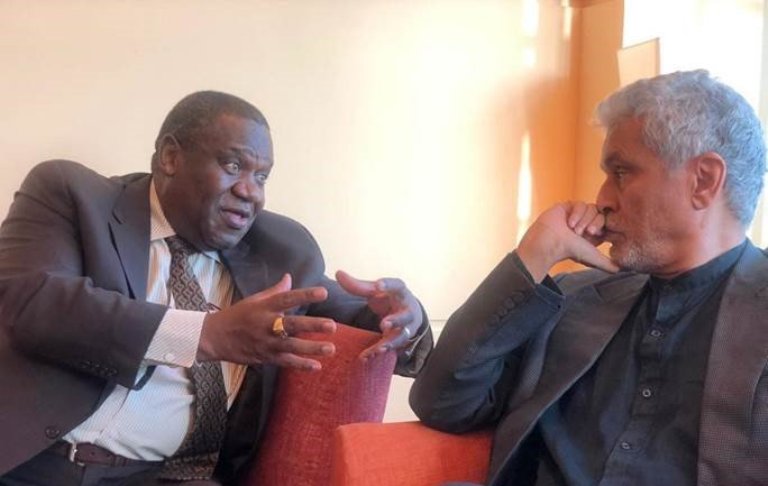African Union to discuss power transfer in Sudan within 2 weeks

May 6, 2019 (KHARTOUM) – The Peace and Security Council (PSC) will discuss a report on the course of the power transfer process in Sudan within two weeks, said the African Union Special Envoy to Sudan.
The PSC recently decided to give the military council, which took power in Sudan after the ouster of President Omer al-Bashir, 60 days to hand over power to a civilian body, as the regional body provides to immediately suspend the membership of any African state if the army comes to power through a coup d’état.
The newly appointed African Special Envoy, Mohamed El Hacen Lebatt, held a press conference in Khartoum to brief reporters about the outcome of his meetings with Sudanese government officials and UNAMID head as well as foreign diplomats in the Sudanese capital.
“The situation of Sudan, despite its specificity, will be measured in accordance with the principles and provisions of the African Union,” Lebatt told reporters in Khartoum on Monday in a press conference with the participation of U.S. Chargé d’Affaires in Khartoum Stephen Koutsis and representatives of the United Nations and the European Union.
The envoy recalled that the Peace and Security Council gave has requested the AU chairperson to report to the Council every three weeks on the progress made in the power transfer process in Sudan.
“There were two weeks left before to make a report, study it and take appropriate measures.”
The Peace and Security Council stressed in its decision of 30 April that the Sudanese Military and the opposition groups “should finalize all transitional arrangements, including modalities, duration and priorities of the transition, as well as legislative and judicial structures, that will lead to the restoration of constitutional order”.
The Council which extended the initial 15 days to 60 days, said this “final extension” is granted to enable the putting in place of a civilian-led Transitional Authority.
The Mauritanian diplomat pointed out that the African Union encourages the ongoing consultations between the military junta and the forces of the “Declaration of Freedom and Change” to reach a civilian government, but expressed concern about the difficulties facing the process.
“I have my reasons to be optimistic, but optimism does not negate obstacles and difficulties,” he said.
However, he underscored that the parties have no choice but to reach and implement an agreement providing to transfer power to civilians.
The U.S and European Union countries say they back the African Union decision and vowed to normalize relations with Sudan once there is a power transfer to civilian rule.
(ST)
